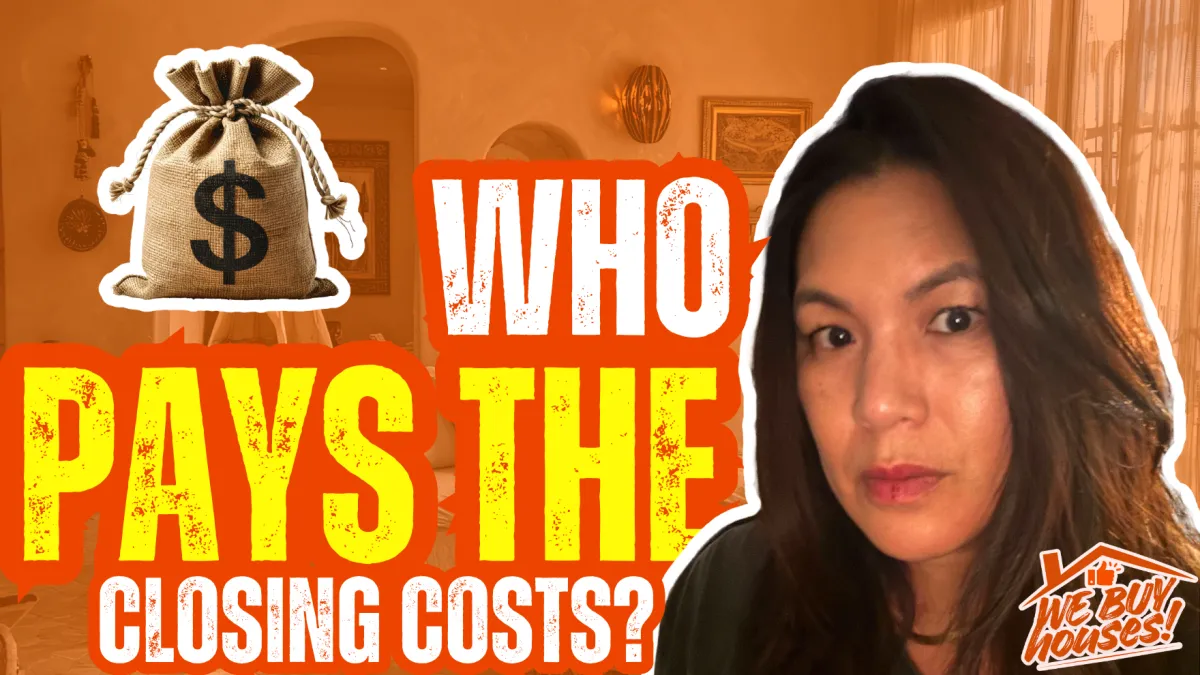
Understanding Who Pays Closing Costs When Selling a Home in Los Angeles
Selling a house in Los Angeles can feel overwhelming because the stakes are high and every dollar counts.
Many Angelinos own property in other states and look up terms like who pays closing costs in Michigan, who pays for title insurance in Michigan or closing costs in Michigan to see how their obligations compare.
While these searches offer general insight, California’s rules and fees are unique, and the amounts involved in Los Angeles often dwarf Midwestern figures.
This guide unpacks who pays closing costs when selling a house in L.A., how much these expenses can run, and why understanding them helps you negotiate a fair deal.
It draws from real market data in California and blends it with the experience of local cash buyers like MaxNet Homes to give you a clear picture of your options.
Why Los Angeles Closing Costs Matter to You
Los Angeles home prices have climbed for years, and high values amplify every percentage‑based fee.
If you’re selling a property from afar or juggling multiple homes in different states, it’s easy to confuse California closing customs with those in Michigan.
In Michigan sellers and buyers split many expenses like taxes and title fees, but Los Angeles sales follow their own norms.
Understanding local expectations prevents surprises at escrow, and it positions you to negotiate better terms when you receive an offer.
What Are Closing Costs?
Closing costs are the fees and taxes required to transfer real estate from seller to buyer.
They include commissions, title insurance, escrow services, lender charges, transfer taxes and recording fees.
In California there is no flat rate for closing costs; charges vary by county, city and price point, but they typically total 2 % to 3 % of the purchase price for buyers and 5 % to 6 % for sellers when you include commission and taxes.
Because L.A. property values are high, even small percentages translate to thousands of dollars.
Typical Seller Expenses in Los Angeles
Sellers shoulder a significant share of the closing burden.
Below are the common fees a Los Angeles seller pays:
Real estate commission: The largest expense is the agent’s commission, usually 5 % to 6 % of the sale price.
Owner’s title insurance: In California the seller customarily pays for the owner’s policy, which protects the buyer from existing liens or title issues.
Documentary transfer tax: Counties and cities charge transfer taxes; in Los Angeles County the basic rate is $1.10 per $1,000 of the sale price, and many cities add their own taxes.
For example, the City of Los Angeles collects a municipal transfer tax of $4.50 per $1,000, and a luxury transfer tax applies on sales above $5 million.Escrow and legal fees: Escrow companies coordinate the transaction and charge a service fee based on the sale price.
Attorneys are optional but can help draft documents; they bill hourly.Prorated property taxes and HOA dues: Taxes and homeowner dues are split between buyer and seller based on the closing date.
Home warranty or concessions: In a buyer’s market sellers sometimes offer credits toward repairs or a home warranty to sweeten the deal.
These costs can quickly add up, especially on a multi‑million‑dollar L.A. property.
Typical Buyer Expenses in Los Angeles
Buyers pay most of the loan‑related charges and due diligence fees.
Common buyer expenses include:
Loan origination and lender fees: These cover underwriting, processing and any discount points used to lower the interest rate.
Appraisal and inspection fees: Lenders require an appraisal, and buyers often pay for separate inspections to assess the home’s condition.
Credit report and application fees: Mortgage lenders pull your credit and charge administrative fees for the loan application process.
Escrow and title fees: Buyers typically pay half of the escrow fee and buy the lender’s title policy that protects the bank.
Recording and notary fees: Government offices charge a small fee to record the deed and notarize documents.
Prepaid items: Property taxes, homeowner’s insurance and interest may be prepaid into an escrow account to ensure they are current.
In California these non‑recurring and recurring fees usually amount to 2 % to 3 % of the purchase price.
On an $800,000 home in Los Angeles, that equates to roughly $16,000 to $24,000 in buyer closing costs.
Who Pays Title Fees at Closing?
The phrase who pays title fees at closing confuses many sellers because the answer depends on local custom.
In Los Angeles the seller pays for the owner’s title policy, while the buyer purchases the lender’s title policy.
However, this allocation is negotiable.
If you negotiate for a higher sale price or other concessions, you might persuade the buyer to absorb some or all of the title expenses.
Similarly, in Michigan it’s also customary for the seller to cover the owner’s policy while the buyer pays for the lender’s policy.
Understanding both states’ norms helps cross‑state homeowners budget correctly.
How Much Are Closing Costs in Los Angeles?
Because Los Angeles homes are expensive, closing costs measured as a percentage may be similar to Michigan but the dollar amounts are much larger.
California data shows that buyer costs typically total 2 % to 3 % of the sale price.
Sellers spend 5 % to 6 % on commissions alone and may spend 0.5 % to 1 % on transfer taxes and escrow fees.
For example, on a $1 million sale an L.A. seller might pay $50,000 to $60,000 in commission plus $5,600 in transfer taxes and additional escrow fees.
If you search how much are closing costs in Michigan, you’ll find estimates around 2 % to 5 % of the sale price.
The percentages overlap, but L.A. values mean total costs can be two to three times higher.
Selling FSBO? What You Still Pay
Some homeowners hope to avoid commission by listing for sale by owner (FSBO).
While you might save agent fees, you still owe mandatory charges like documentary transfer tax, recording fees, title insurance and escrow services.
You may also need to hire an attorney to draft purchase agreements and disclosures.
Sellers often order a pre‑listing appraisal to set the asking price, which costs several hundred dollars.
Even in a FSBO transaction, understanding who pays for closing costs is critical because buyers expect sellers to cover certain fees just as they would in an agent‑assisted sale.
Factors That Influence Costs
Several variables can push closing costs higher or lower:
Sale price and region: Higher prices mean larger commissions and title premiums; L.A.’s median home values drive costs above $10,000 on even modest properties.
Market conditions: In a slow market sellers may agree to concessions or credit the buyer at closing.
Service provider choice: Title companies, escrow agents and attorneys set their own rates; shopping around for quotes can save you money.
Negotiation: Almost every fee except government taxes is negotiable; your ability to negotiate depends on demand for your property and the strength of your offer.
Ways to Lower Closing Costs
Knowing who pays closing costs buyer or seller is only half the battle; reducing them is just as important.
Consider these strategies:
Compare service providers. Request estimates from several title companies, escrow firms and attorneys; small differences can add up.
Negotiate commissions. Real estate commissions are the largest cost; some sellers negotiate a lower percentage or choose a flat‑fee agent.
Time your sale wisely. In a hot seller’s market you can ask buyers to absorb more fees or waive inspection contingencies.
Offer credits instead of repairs. If inspections reveal problems, credit the buyer at closing rather than making repairs yourself; this can save time and money.
Work with a cash buyer. Cash buyers like MaxNet Homes purchase houses as‑is and cover many closing costs, eliminating lender‑related fees and allowing you to close quickly.
Questions You Might Have
When selling a house who pays closing costs?
Both parties contribute; sellers pay commission, title insurance and transfer taxes, while buyers pay loan and inspection costs.
Who pays closing costs buyer or seller?
Each side handles different charges, but virtually everything is negotiable; in some cases sellers agree to pay part of the buyer’s closing costs in exchange for a higher purchase price.
How much are closing costs in Los Angeles?
Expect around 5 % to 7 % of the sale price for sellers and 2 % to 3 % for buyers; high property values mean totals can easily exceed $20,000.
Who pays title fees at closing?
Custom in Los Angeles assigns the owner’s title policy to the seller and the lender’s policy to the buyer.
Why do so many people search for closing costs in Michigan?
Many L.A. homeowners own property in Michigan or other states.
Comparing Michigan’s costs with Los Angeles helps cross‑state sellers budget accurately and understand the differences between Midwest and West Coast transactions.
Why Choose MaxNet Homes
As a Los Angeles cash home buyer, MaxNet Homes streamlines transactions and demystifies closing costs.
Founder Tricia Watts appeared on HGTV’s Flipping 101, and her team has guided many families through complex California sales as well as out‑of‑state closings.
One client shared, “Tricia at MaxNet Homes was there whenever we had a question and even handled our loan payoff so the process stayed smooth…we closed in under two weeks”.
Another review praised her for helping an elderly seller relocate quickly after selling within 30 days.
These stories show how a trustworthy cash buyer can relieve you of the headaches around closing costs and repairs.
MaxNet Homes buys houses in any condition, covers many fees and lets you choose the closing date.
Ready for a Hassle‑Free Sale?
If you need to sell my house fast or want guidance on Los Angeles closing customs, MaxNet Homes can help.
We pay cash for houses in any condition, meaning you avoid repairs, clean‑outs and open houses.
Learn more about alternatives to traditional agents by reading our post Flat Fee Real Estate Brokers: Money‑Saver or Costly Mistake? (Pros, Cons, and Smart Alternatives for Los Angeles Sellers).
Contact us today for a respectful, no‑obligation offer and make your next move with confidence.

